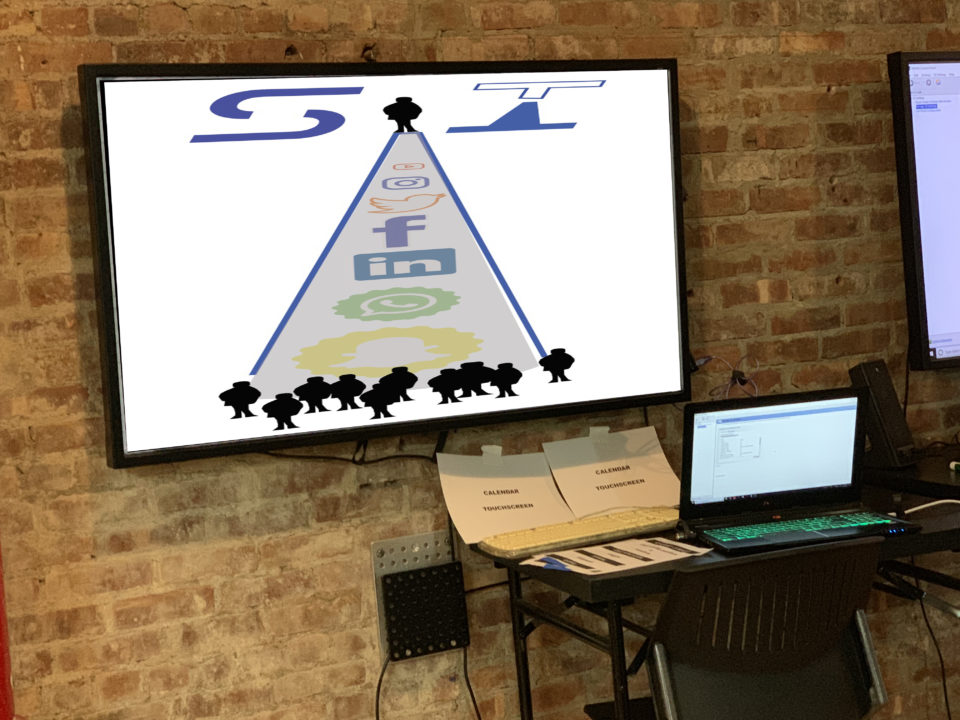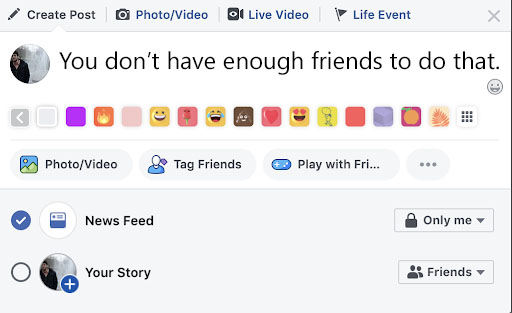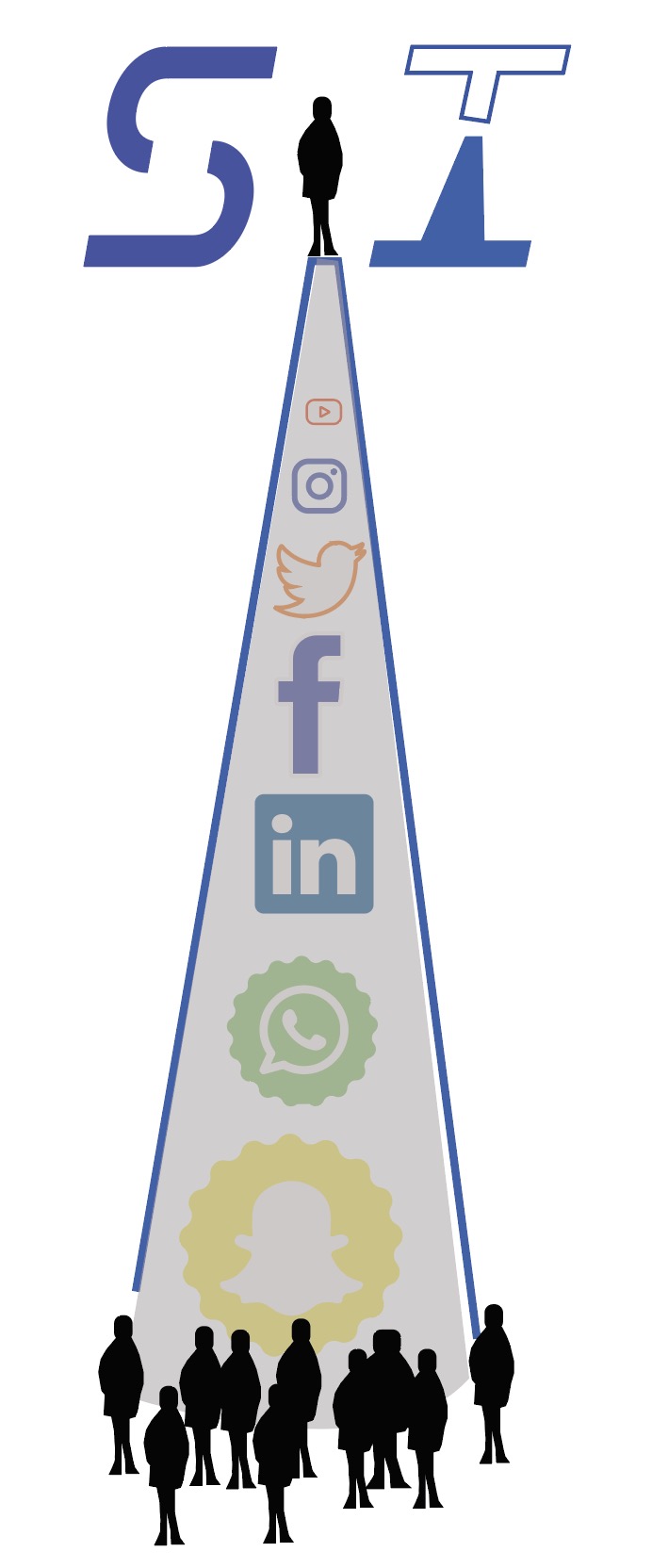
Description
“Social Isolatr” is a Google Chrome / Firefox / Safari extension and artwork that only allows you to share things on social media sites if certain conditions are met relating to your social status. For example, if you do not have enough friends on Facebook, then you will not be able to share anything. The project centers on our ability to gather friends but our inability to maintain those friendships over time. “Social Isolatr” imposes constraints on each user based on their activity on a specified social network. The project invites developers to create new “Conditions” that would work with the extension.
Collaborator
Sam Beller
Exhibitions
ITP Camp Final Show, New York University, June 25, 2019
Social Distancing Art Festival, May 1, 2020.
On display at ITP Camp 2019 Final Exhibition, ITP/NYU, NYC 6/25/2019.
About
Social media is gaining increasing importance to the daily lives of everyone who is connected to the Internet. Without a social network account (or multiple accounts) that detail one’s personal, social, academic, and professional profiles, our eligibility for inclusion in everything from social communities, to cultural institutions, to potential employment opportunities is diminished. But what happens when we rely too much on these systems to govern our lives? How does our daily use of them effect our real world relationships and connections? For example, employers and potential colleagues research people online to vet our engagement and overall level of social involvement before accepting us into their social circles and communities. Are these constant checks and balances hurting or helping our relationships online and off? Social Isolatr is a feedback loop that examines how you use your social media accounts and places limits on their use based on your current patterns of use. Are you more or less likely to interact in the same way now that you know how your interactions online are manifesting?
Here is a screenshot of Social Isolatr on Facebook. It worked so that when you clicked to create a new post, it checked how many friends you have and if you did not have enough it replaced the text in the post box and removed the post button. Attached is a screenshot of what happens with someone tried to create a post and they did not have enough friends.
Community
“Social Isolatr” is an open platform that invites developers, users, artists, hackers, and designers to contribute to its overall system. The project encourages the public to build and publish “conditions” for interaction that would work with the piece. These conditions would work for public engagement and encourage people to think more critically about the social networks they engage with daily and why and how they use them. This concept benefits the public in many ways because it enables them to realize how much time and energy they are investing into their social media use which ultimately yields profits for these large corporations. Thie goal of increased community involvement is to aid in creating an environment that would aid in changing public behaviors on social media systems over time.
Impetus
“Social Isolatr” is an art project that critically examines how important social networks are becoming to our existence in an increasingly networked society, and places limits and “conditions for access” within their systems in order to provide an ongoing feedback loop of involvement to each user. More than a single browser extension, “Social Isolatr” is also a development community that encourages the public to create and publish “conditions” for interaction with specific social networks that everyone using the application will be able to access. As more conditions are built by the public to enrich the platform, “Social Isolatr” will gain in strength as a platform to harness and critique the power these social networks have over connected populations at large.
Addiction
“Social Isolatr” helps to curb social media addiction by placing limits on our daily interaction with social media and making us think twice about how we interact with each other online within the confines of social media’s walled access spaces. As stated above, the project forces us to realize how much energy and attention we are giving these online spaces (and the companies that run them) and may have an effect on our future involvement and interaction with them. The goal is not to completely turn people off to these companies, but instead find an equilibrium through the project that could help us manage how involved we ultimately need to be with them in order to function in our daily lives.






